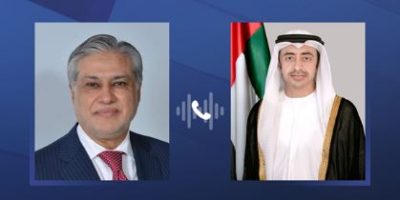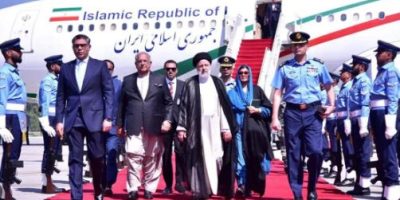Message of FM Bogdan Aurescu on the 160 Years of Modern Romanian Diplomacy


BUCHAREST: On the Occasion of 160 Years of Modern Romanian Diplomacy, Minister of Foreign Affairs Bogdan Aurescu has issued a special message.
He said in the message that In 2022, we mark 160 years since the establishment of the Ministry of Foreign Affairs of Romania: 160 years of modern Romanian Diplomacy – 160 years of concrete and valuable contribution to the creation, continuance and development of Romania’s international relations, to the democratic path of the Romanian state, 160 years of service in the defence of the interests and security of Romanian citizens, wherever they may be.
Looking back in history, we realize that the emergence of a modern institution dedicated to diplomacy and to the regulation and management of the young state’s foreign ties in 1862 gave a boost to the efforts of political emancipation and the acquisition of a well-defined international profile, which would establish Romania as an independent and sovereign state. An essential component of Romanian foreign policy at that time was the encouragement of a pragmatic and courageous diplomacy, oriented towards achieving the fundamental objectives of the Romanian nation.
The first task of the newly established ministry was to achieve the fundamental objectives of international recognition and completion of the Union of the Principalities: the first objective was related to the recognition by Europe of the double election of the ruler Alexandru Ioan Cuza, the second objective was the acceptance by the Ottoman Porte and the guarantor powers of full political and administrative union.
In its 160 years of operation, the Ministry of Foreign Affairs has also gone through difficult times, from the War of Independence, the Balkan Wars, the two World Wars and the fascist and communist dictatorships, to the acute challenges of today. Among the Ministry’s employees have been heroes and veterans, rescuers considered “righteous among nations” for their actions during the Holocaust, personalities who acted with all determination to achieve national goals and interests.
Despite historical difficulties, the Ministry of Foreign Affairs has always acted as a vector for Romania’s modernisation and progress.
Personalities such as Nicolae Titulescu, Grigore Gafencu or Vespasian Pella, along with many other diplomats contributed to the institutional and conceptual evolution of Romanian Diplomacy and our institution.
The history of the Ministry of Foreign Affairs continues to be written, day after day, by the people who serve today in an institution that defends the interests of a democratic, free country, a responsible member state of the European Union and a reliable NATO Ally, a Strategic Partner of the United States of America, a state strongly committed to promoting respect for international law, rules-based international order, effective multilateralism and fundamental rights and freedoms.
At the same time, Romanian diplomacy will continue to support and promote democratic values, stability and security in the region and globally, strict respect for international law and rules-based international order, effective multilateralism. The benchmarks of foreign policy remain the strengthening of our country’s influence in the European Union and NATO, the development and deepening of the Strategic Partnership with the USA.
In a dynamic and complex global context, marked by a series of crises and substantial transformations of the reference framework for Romania’s diplomatic action, for its national security, but also for the security, prosperity and exercise of the fundamental rights of its citizens, the Ministry of Foreign Affairs continues to transform and adapt.
When, for the first time since 1945, the spectre of a brutal, unjustified and unprovoked war waged by Russia against neighbouring Ukraine descends on Europe, the implications can only be global. Today, we have before us a major test of mutual commitments based on solidarity and concrete action. In this sense, the firm European and Euro-Atlantic response is based on the same values that guide the entire action of the Ministry of Foreign Affairs. Together with our allies and partners, we are deeply committed to formulating a comprehensive diplomatic response to this aggression, with its tragic humanitarian consequences and inestimable economic costs.
This is not the first time that the Ministry of Foreign Affairs has been faced with such circumstances. It is, however, the first time that, also as a result of decades of diplomatic work, Romania is deeply anchored in a Euro-Atlantic system of unwavering values, security and solidarity. And this does not mean that threats and risks can be ignored; on the contrary, we must respond to them effectively, enhancing our ability to achieve our core objectives.
Whether we are talking about climate change, economic crises, security crises, the adaptation of Romanian diplomacy aims at both the lessons learned in 160 years of modern diplomatic history and the structuring of a resilient diplomatic action, in all its dimensions. And the adaptation of our action takes shape both in the space of classical interactions and in the space of digital diplomacy.
We don’t do all these efforts alone. In an era when our presence in the public space has become highly relevant, we aim to be increasingly open to citizens, so that the substance and complexity of our work is reflected in the public dimension of society.
We want as wide an audience as possible to have direct contact with our work and to understand it, because it reflects the fundamental political lines we follow and the objectives we have set ourselves in the interest of citizens. Also, as part of our open government approach, civil society is our partner in our joint efforts to build and enhance the resilience of society.
Since the establishment of the Ministry of Foreign Affairs, relations with Romanian citizens abroad have been a priority line of action, managed through the Consular Directorate, a structure that can claim one of the longest histories, its history practically merging with that of our institution. The unprecedented diversification and multiplication of the consular caseload, the exponential increase in the volume of consular services provided and, at the same time, the increase in the complexity of requests for consular assistance and protection, all directly determined by the significant increase in the size of the Romanian presence abroad after 1989, in parallel with the expansion of Romania’s foreign consular network, required the creation of specialized structures for certain sectors of consular activity. Thus, in 2003 the directorate was reorganised as a general directorate, i.e. the Directorate General for Consular Affairs, which later became the Consular Department.
In view of the realities that the consular network has to face today, we have started in 2020 an extensive effort to adapt consular tools by modernizing, de-bureaucratizing and digitalizing consular services, while expanding the consular network, so as to adequately respond to the legitimate expectations of our citizens, as well as to contemporary requirements, realities and challenges. And this consular reform effort will continue with determination.
The Ministry of Foreign Affairs will continue to fulfil its duty towards Romanian citizens. It will do so by keeping as a benchmark the work of diplomats who contributed to the foundation and shaping of a united and modern Romania, through diplomatic conduct and action dedicated to the same fundamental goal: protecting and promoting the values, interests and objectives of our country and the welfare and security of our citizens.
Additional information:
In the autumn of 1859, following the election of Alexandru Ioan Cuza as ruler of both principalities, on January 5, 1859 in Moldova and on January 24, 1859 in Wallachia, the Romanian diplomats of that time obtained, through intense efforts and skilful professional approaches, the recognition of the double election, even if it was of an exceptional nature, being valid exclusively for the duration of Cuza’s reign. Two years later, the full political and administrative union of the country was also internationally recognised, and on January 22, 1862 the first government of modern Romania was formed.
The achievement of international recognition of the double election of Alexandru Ioan Cuza and the completion of the Union of the Principalities thus represented the first great successful steps of modern Romanian diplomacy, and for this purpose diplomatic representatives were sent to Constantinople, Paris and other important European capitals.
Among the measures to modernize the Romanian state and society advanced by Alexandru Ioan Cuza was the establishment of a single portfolio of Foreign Affairs, and thus in 1862, the first holder of this dignity was Apostol Arsache, before the corresponding institutional structure was organized. A doctor by profession, established in Wallachia in 1814, he had been the holder of the Foreign Affairs portfolio of Wallachia from April 24, 1835 to May 13, 1837 and from April 30, 1861 to January 21, 1862.
The Department of Foreign Affairs, the precursor of today’s Ministry of Foreign Affairs, was established on July 27/August 8, 1862, by Decree of the ruler Alexandru Ioan Cuza, published in the “Monitorul”, Official Journal of the United Principalities. Apostol Arsache was in office, as Minister of the new state, from January 22, 1862 to June 24, 1862. The next minister of foreign affairs of Romania, heading the Department of Foreign Affairs from June 24 to September 29, 1862, was Alexandru Cantacuzino.
Bogdan Aurescu is the Foreign Minister of Romania
Related News

Dar extends sympathy to UAE over torrential rains devastation
ISLAMABAD, APR 24: /DNA/ – Foreign Minister of Pakistan, Ishaq Dar held telephone conversation withRead More

PTI blasts FO for silence over US warning of imposing sanctions for doing business with Iran
Govt should issue befitting, solid response to US administration threatening statement ISLAMABAD: /DNA/ – PakistanRead More


Comments are Closed